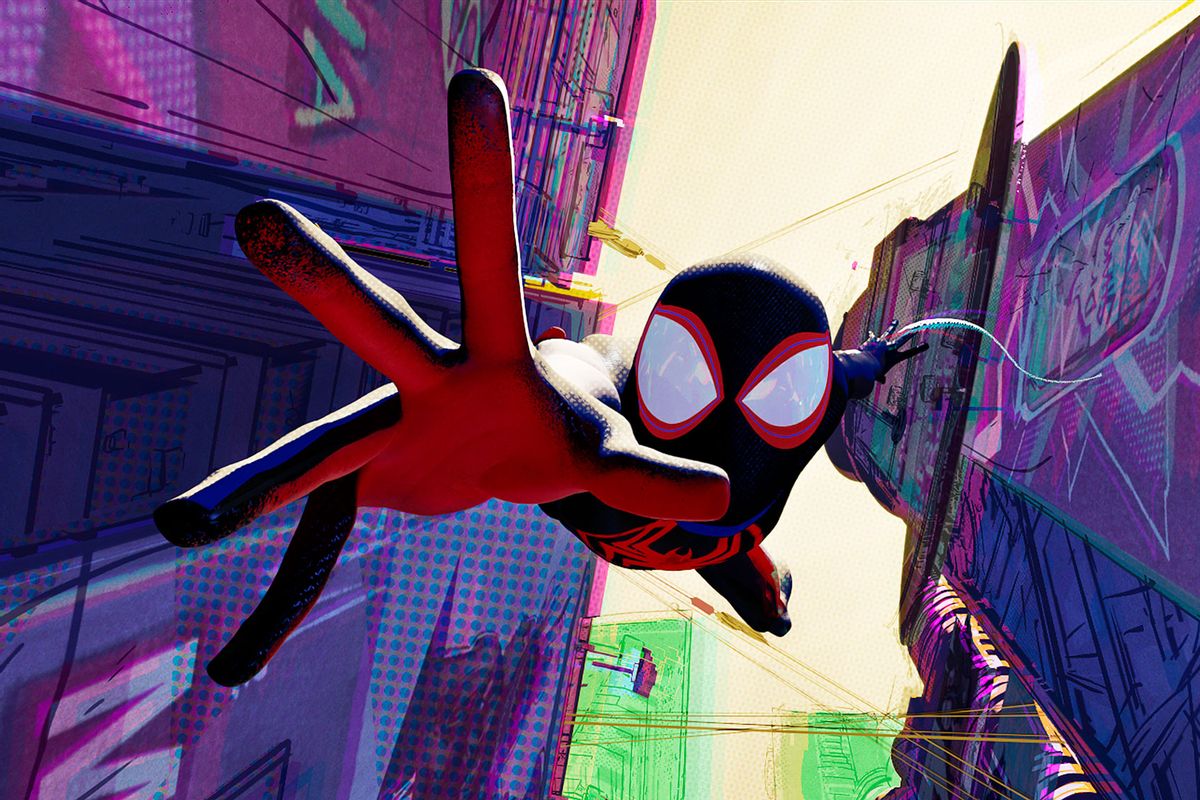We're in something of a Spider-Man renaissance. There's always been a friendly neighborhood superhero on the screens every few years — be it Tobey Maguire's depiction from 2002-2007, Andrew Garfield's depiction from 2012-2014 or Tom Holland's depiction from 2016 onward — but never have we been so overrun with Spider-Men, -women, -cartoons, -cats and other species as there now that we've entered the Spider-Verse series. Its new sequel "Spider-Man: Across the Spider-Verse'' has predictably garnered as much acclaim as it does multiple universes. It was applauded for its range of vibrant animation, became the second highest box office opening of the year at $120.5 million and touted as a "masterpiece" by many reviewers. The true success of the sequel, however, lies not only with its visuals (though they are superb), but with the movie's decision to not translate the Spanish dialogue in the film.
Phil Lord, who produced and co-wrote both the first and second movies in the franchise, told Remezcla during the premiere for "Into the Spider-Verse" that this choice helped keep the film authentic to his own experience growing up in a Cuban American family. "I grew up in a bilingual household in the bilingual city of Miami where you hear Spanish all over the place, and it's not particularly remarkable," he said. "It was important for us to hear Spanish and not necessarily have it subtitled. It's just part of the fabric of Miles' community and family life."
He continues this thread into the second movie, and it's here that the lack of subtitles, coupled with the crux of the film, takes on new meaning as a way to escape the white gaze.
"Across the Spider-Verse" picks up where the first movie leaves off with Miles Morales (Shameik Moore) fighting crime in Brooklyn until he learns about the elite task force of Spider-people assembled across the multiverses, sparking his journey throughout the web of worlds. Like the first movie, Spanish runs throughout the film. There's no lengthy dialogue in Spanish but it's there in the "¿Qué te pasó, hijo?" that Miles' mom asks or in the "¡Qué grande estás!" that his family member exclaims. Knowing or not knowing the language doesn't change your general understanding of what's happening, and most translations could be guessed using context clues. By not bothering to explain itself, however, the movie creates a different, more intimate level of viewing for those who know Spanish and see themselves reflected in Miles' Afro-Puerto Rican family.
Those who don't know Spanish may have missed the sneaky way the movie serves "c**t," thanks to Miguel O'Hara or Spider-Man 2099 (Oscar Isaac) when he quickly mutters, "Aye, coño." For those who do, they share in the film's secret, granted a level of access that is dictated by language and identity. Leaving out the English subtitles is a bit like saying, "If you know, you know," and being completely unbothered by those who don't, a move that prioritizes Latinx people — and excludes everyone else.
 Spider-Man: Across the Spider-Verse (Sony Pictures)
Spider-Man: Across the Spider-Verse (Sony Pictures)
Historically, the case has always been the opposite with media catering to and conscious of a white audience, a term defined by Toni Morrison as the white gaze. The gaze is used as a strategy to affirm white superiority. Casting people of color in roles that reinforce racial stereotypes (like Viola Davis as housekeeper Aibileen in "The Help") is an example of the white gaze in action, because it coddles and sucks up to the sensitivities of white viewers.
The expected addition of subtitles assumes that a white, English-speaking audience does not know Spanish and thus needs translations. "Spider-Verse" rejects this gaze by creating a cast of diverse characters who transcend stereotypes and by assuming instead that its key audience speaks Spanish.
This gaze shift is exemplified in the ways the movie employs humor, too. In jokes, there are always those who are "in the know" or get the joke and those outside of it, either because they're the butt of the joke or miss its context. In "Across the Spider-Verse," those in the know are people of color. When Miles' parents are at a meeting with his guidance counselor (Rachel Dratch), she tells them he needs a story to make a compelling college application, deciding it should be, "You grew up in a struggling immigrant family . . ." The humor comes from the comically confused parents, when Miles' mom, Rio Morales (Lauren Vélez), replies, "I'm from Puerto Rico? Puerto-Rico is a part of the United States." The humor pokes fun at the ways the white counselor has fallen prey to stereotypes, assuming that people of color in America are all immigrants and that immigrants are always poor and pitiable. Well, the joke's on her . . . and her own white gaze.
Sure, the humor is accessible to anyone, but it hits harder for people who have been in the parents' shoes or actually do come from immigrant families. The same holds true when Indian Spider-Man, Pavitr Prabhakar (Karan Soni) points to a building in the fictitious city between Mumbai and Manhattan, Mumbhattan, and says "and this is where the British stole all of our stuff." Cue colonizer-insulting laughter.
Want a daily wrap-up of all the news and commentary Salon has to offer? Subscribe to our morning newsletter, Crash Course.
Both the jokes and the non-translated Spanish speak to Black, brown, Indigenous and other people of color, a crucial point given that the main problem of the film is Miles dealing with what is essentially imposter syndrome, a fear that one isn't worthy or deserving of their station in life or fame and is especially felt by people of color. Because he was bitten by a radioactive spider that escaped a different universe, Earth-42, Miles, as Miguel tells him, is an anomaly who was not meant to be Spider-Man and caused the disruption of the multiverse. "You don't belong here," he says to Miles as every other Spider-creature in existence hunts him down. It's returning to his mom's advice to "never let anyone at those big, fancy places tell him he doesn't belong" that helps him reach the central lesson of the film: confidence. "I know how strong I am now," realizes Miles, deciding that he is in charge of his own story.
And isn't this what the non-subtitled Spanish asserts as well? When it assumes a non-white audience and a BIPOC gaze, the movie affirms that these identities matter. They are the priority. This focus on viewers of color, non-English speakers and immigrants tells them that this movie, unlike so many in Hollywood or even Marvel's own mega franchise, is for you. The world, like the Spider-Verse, is multicultural and multilingual. It's time to remember that whiteness doesn't exist at the center of it.
Read more
about this topic



Shares